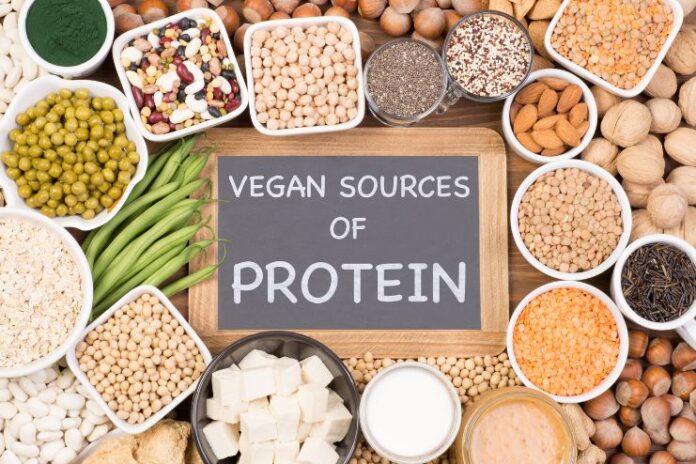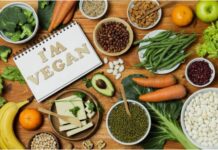Affiliate Disclaimer
Some links in this article are affiliate links. We may earn a small commission if you make a purchase through these links, at no extra cost to you. We only recommend products we find useful to our readersWhen you think of protein, do you picture grilled chicken, eggs, or other meats? What about those who follow a vegan diet? Is it possible to get enough protein without relying on animal-based foods? The answer is yes! You can meet your protein needs without consuming meat, eggs, or dairy. If you’re on a vegan diet and concerned about protein intake, rest assured—plant-based foods can provide all the protein you need.
Protein is essential for everyone, not just bodybuilders and athletes. Your body requires protein daily to repair muscles, produce hormones, build immunity, and maintain energy levels. It is one of the three major macronutrients, and without enough of it, your body can’t function optimally.
The best part is that you don’t need to turn to animal products to satisfy your protein needs. Numerous plant-based foods are rich in protein, and once you know what to look for, meeting your daily requirements becomes easy.
In this article, we will explore how a vegan diet can be not only delicious but also packed with protein. We will also highlight some key vegan foods that can help you maximize your dietary protein.
Read More: Easy Guide To Start Vegan Diet For A Week- Make It Simpler.
Top 5 Protein-Rich Foods To Include In Your Vegan Diet
A vegan diet is far from boring. With the right knowledge, you can enjoy some delicious recipes with ingredients and foods high in protein.
11. Soy – A Plant-Based Protein Powerhouse
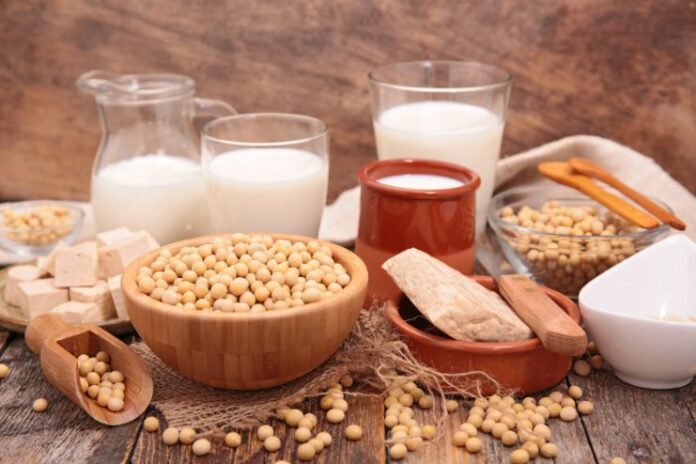
Soy is one of the best sources of plant-based protein available. Not only is it high in protein—it’s a complete protein, which means it has all nine essential amino acids your body requires.
Why Choose Soy as a Vegan Protein Source?
- Very High in Protein: 100 grams of soy chunks haveabout 52 grams of protein, which makes it one of the highest plant-based sources.
- Full Amino Acid Profile: Unlike other plant-based proteins, soy contains all the essential amino acids, just like most animal-based proteins do.
- Low in Fat: Soy products are low in fat by nature, which is an excellent choice for those who want to stay
Other soy products, such as tofu and tempeh, also have high protein content. For instance, tofu comes next to soy chunks and provides 17–21.8 grams of protein per serving, varying with the type and amount. Tofu is a good source of plant protein, vital vitamins, and minerals, according to the American Heart Association, and a heart-healthy food.
With its stunning nutritional profile, soy is an essential supplement for vegans trying to easily fulfill their protein requirements. Add it to stir-fries, curries, or salads!
Read More: 5 Common Mistakes People Make When Starting a Vegan Diet
22. Hemp Seeds:
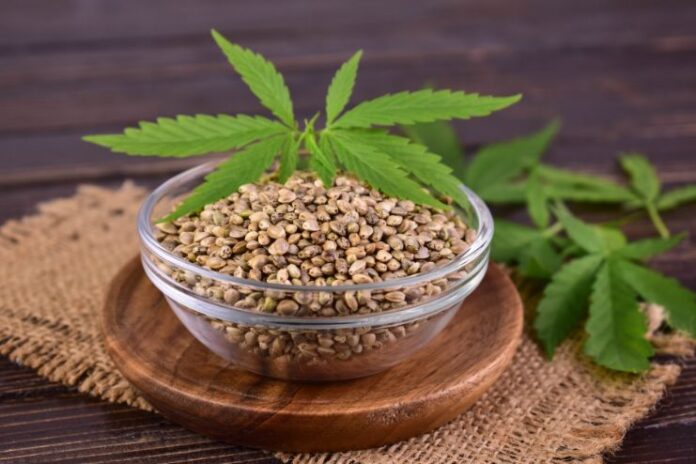
Hemp seeds are a plant-based powerhouse of protein, providing all nine essential amino acids, thus being a complete protein. They are rich in protein and nutrients, making them a great option for vegans who want to increase their daily protein intake.
Not only are hemp seeds rich in protein, but they also contain omega-3 and omega-6 fatty acids, fiber, and essential minerals.
Add hemp seeds to salads, blend them into smoothies, or incorporate them into baked goods to add a rich, nutty flavor while increasing your protein consumption.
Protein Content in Hemp Seeds: Here’s the protein content of hemp seeds in different forms:
- Whole Hemp Seeds– 31.6g of protein per 100g.
- Hemp Protein Powder– 50g of protein per 100g.
33. Oats – A Healthy and Protein-Dense Staple
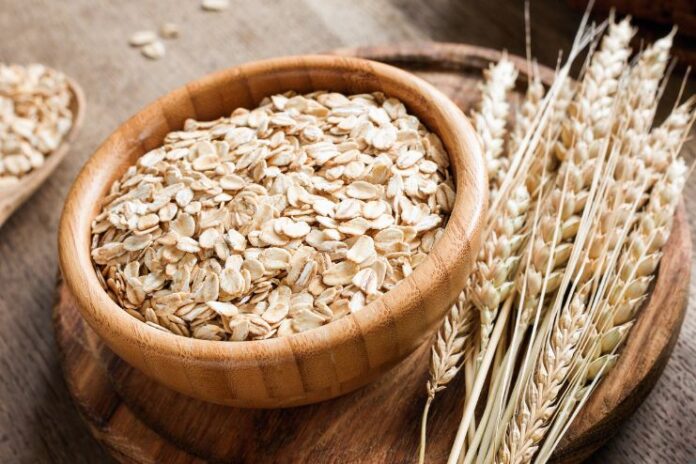
Oats are not only an excellent source of fiber but also contain a good amount of plant protein, making them a wonderful addition to a vegan diet. Although they are not as protein-rich as soy, oats have a balanced amino acid profile that helps in muscle repair, energy production, and overall well-being.
Oats are a fantastic plant-based protein source, offering a well-balanced amino acid profile. While not a complete protein on their own, they pair well with other plant proteins to help meet daily protein requirements. Here is how various forms of oats differ in their protein content:
- Whole Oats: Whole Oats 10–15g of protein per 100g.
- Oat Flour: Oat flour has around 12–14g of protein per 100g.
Oats are also rich in lysine and methionine, essential amino acids that complement other plant-based proteins. They provide sustained energy through a combination of complex carbohydrates and protein, making them an excellent choice for breakfast or snacks. Whether blended into smoothies, cooked as porridge, or used in baking, oats offer a versatile and protein-packed solution for vegans.
Read More: Vegan Diet Plan For Vegans.
44. Almonds – A High-Protein Plant-Based Snack
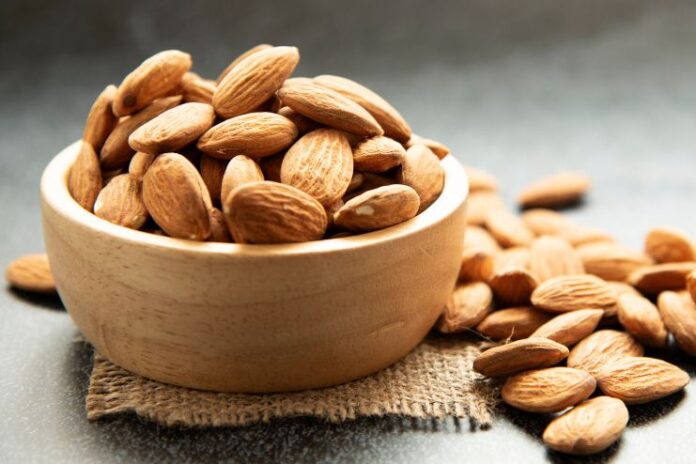
Almonds are among the most nutritious nuts for plant-based protein, containing an excellent proportion of protein, healthy fats, and nutrients. Eat raw, roasted, or as almond butter, they provide a healthy and easy source of nutrition in any vegan diet.
Protein in Almonds:
Here’s how different forms of almonds have a rich content in protein:
- Whole Almonds: Whole almonds contain 21g of protein per 100g.
- Almond Flour: Almond flour is rich in protein and contains 19g protein per 100g.
- Almond Butter: Almond butter has 25g of protein per 100g.
In addition to their high protein levels, almonds are also rich in vitamin E, magnesium, and healthy fats. They are a great all-around option—ideal as a snack, added to smoothies, or incorporated into baked goods to give your meals an added protein kick.
Read More: Plant-Based Eating and Bone Health: Are You Getting Enough Nutrients?
55. Beans – The Versatile Protein Option
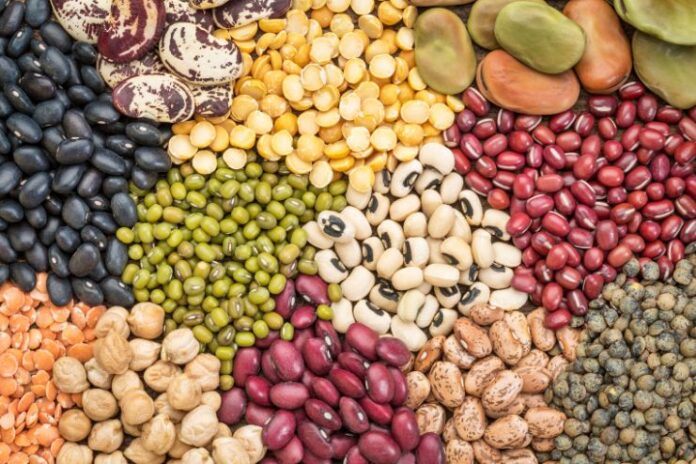
Beans are nutritious and versatile, with high protein per serving. Here’s a comparison of various types of cooked beans:
- Soybeans (Edamame): 3g of protein per cup (cooked), or 63% of the Daily Value (DV).
- White Beans: 4g of protein per cup (cooked), or 35% DV.
- Cranberry (Borlotti) Beans: 16.5g of protein per cup (cooked), or 33% DV.
- Pinto Beans: 15.4g protein per cooked cup, supplying 31% DV.
- Kidney Beans: 3g protein per cooked cup, delivering 31% DV.
Beans are not only high in protein but are also a rich source of dietary fiber, iron, and potassium, qualifying them as a heart-healthy food for most meals.
66. Lentils – An Everyday Source Of Protein
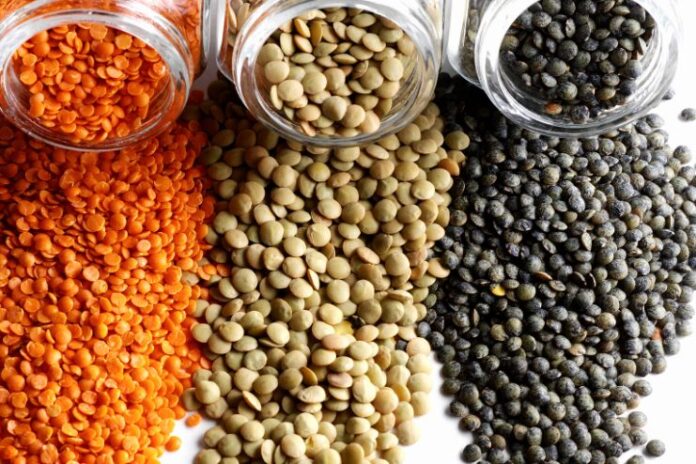
Lentils are yet another nutritional powerhouse, particularly appreciated for their fiber and protein value. Here is the protein in cooked lentils:
- Cooked Lentils: A ½ cup serving yields approximately 12g of protein.
In addition to protein, lentils are rich in fiber, folate, and iron. They are naturally gluten-free and contain a low glycemic index, making them fit for different diets.
Adding lentils to your diet can increase your protein levels along with the necessary nutrients. They can be added to salads, soups, stews, or served as individual dishes, for versatility and health.
77. Potatoes – A Surprisingly Good Source of Vegan Protein
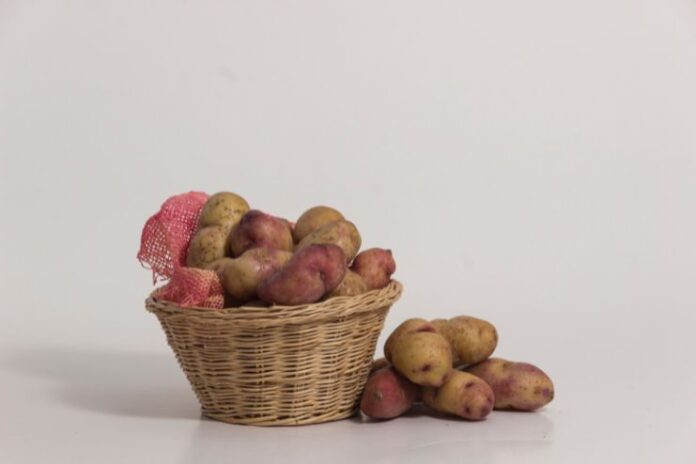
Potatoes are not likely the first thing that comes to mind when one considers protein, but they can still play a big role in your daily consumption. Although they have less protein than legumes or grains, their high level of consumption makes them a useful component of a plant-based diet.
Protein Content in Potatoes: Let us understand the protein content in various kinds of potatoes.
- Russet Potato: 8g of protein per large potato (299g).
- Red Potato: 7g of protein per large potato (300g).
- Sweet Potato: 5g of protein per medium potato (130g).
Potatoes are not as high in protein as other plant foods, but they can still be a good addition to overall intake, especially when combined with other high-protein items. And the best part is how easy they are to get into any meal!
8Conclusion:
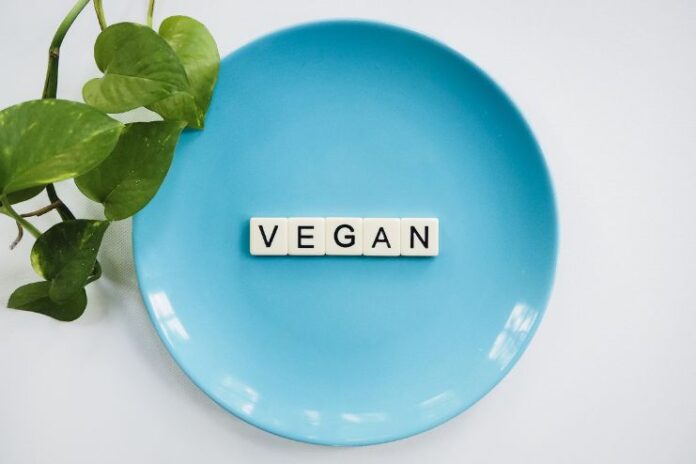
A vegan diet is not short on protein, once you know where to find it, plant foods provide more than enough high-quality protein. This aids in muscle repair, energy production, and overall health. From soy and tofu, which contain complete proteins, to hemp seeds, oats, almonds, and even potatoes, each of these foods plays a significant role in meeting daily protein requirements.
By adding some of these ingredients to your diet, through smoothies, salads, stir-fries, and snacks, you can effortlessly achieve your protein needs without sacrificing healthy, tasty, sustainable plant-based cuisine. So whether you’re an old pro at veganism or simply dipping your toes into the world of plant-based nutrition, don’t worry, gaining enough protein has never been so simple!
-
Jun 2016Written by Abhro
-
Apr 2025Edited by Vaishnavi
9References
- https://redcliffelabs.com/myhealth/food-and-nutrition/how-much-protein-in-100-gm-soya-chunks/
- https://www.potatoes.com/nutrition-facts?utm_source=chatgpt.com
- https://bdingredients.com/nutrition-information/
- https://www.sciencedirect.com/topics/agricultural-and-biological-sciences/oat-protein
- https://redcliffelabs.com/myhealth/food-and-nutrition/how-much-protein-in-100-gm-soya-chunks/
- https://www.lentils.org/health-nutrition/nutritional-information/













